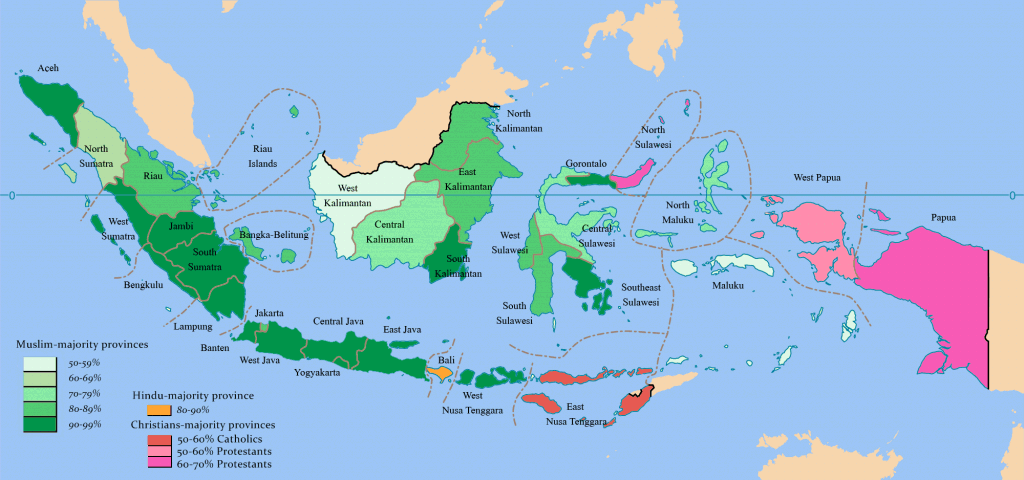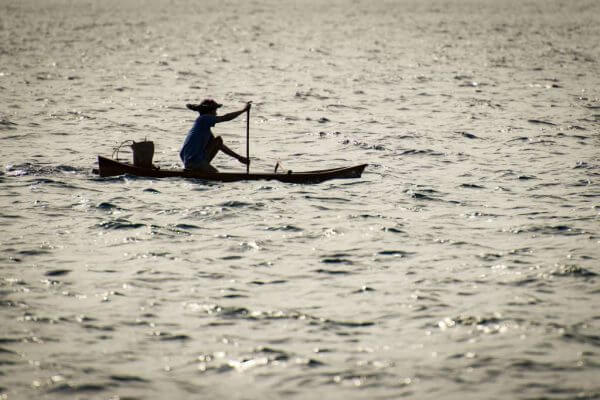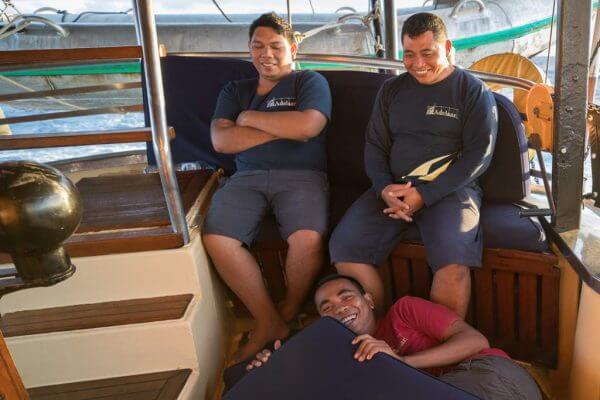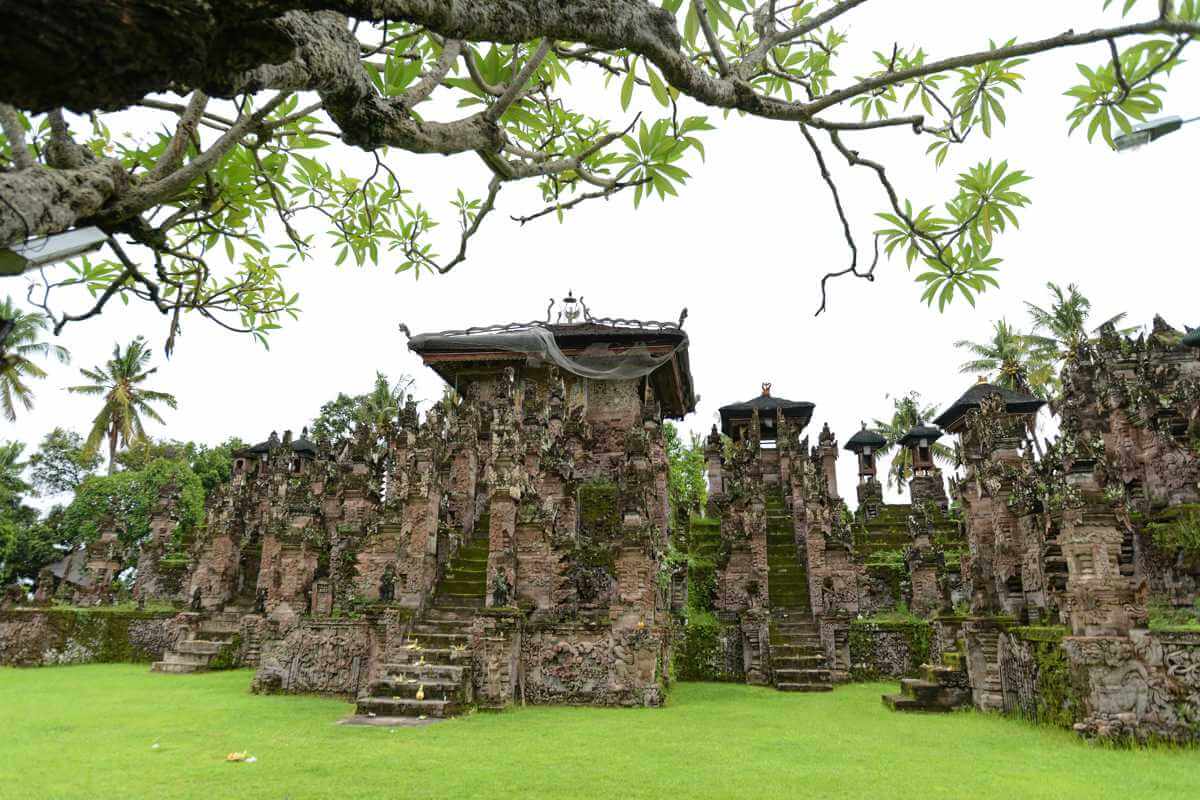The six official religions recognized by the Indonesian government are Islam, Protestantism, Catholicism, Hinduism, Buddhism and Confucianism. This does not account for the tribal and ancestral beliefs and traditions. They existed long before explorers set foot on these islands, and long before Indonesia became Indonesia. As previously mentioned, such a diverse and wide country is bound to have a very interesting cultural background. However, our focus this time is on religion and its geographic distribution across the Indonesian archipelago.

The main religions you would encounter while cruising with Adelaar are the following:
- Islam (Abrahamic monotheistic religion teaching that there is only one God and that Muhammad is the messenger of God)
- Christianity (Abrahamic monotheistic religion based on the life, teachings, and miracles of Jesus, known as the Christ, who is the focal point of the Christian faith)
- Balinese Hinduism (Hindu worship incorporating local animism, ancestor worship or Pitru Paksha and reverence for Buddhist saints or Bodhisattava)
It is also worth noting that most of the port towns usually host a lot of Muslims no matter which island you visit. This is mainly due to the “bajo people”, who are families of fishermen. They used to live exclusively at sea on their boats but have slowly adopted a more sedentary lifestyle. Coming from all over Indonesia, they generally follow Islam, which explains why you often find mosques in most harbors, even if the dominant religion of the specific island is not Islam.
Religions onboard the Adelaar

In practicality, on the Adelaar Destinations, you can expect to learn about Hinduism, Islam, and Christianity in Indonesia. Starting in Bali with minimum one night on land prior to departure. It gives you the opportunity to get a feel of what Bali has to offer and to witness the culture first hand. The Balinese Hinduism is incorporated into the daily life in many ways. The most obvious evidence are the morning offerings, which are deposited every day at the entrance of places. Read our other blog about a stopover in Bali for more information.
Sailing past the island of Lombok to explore Sumbawa means our trip now has brought you to Islamic islands. You do not only see a change in the beautiful scenery, but also in the people. Gone are the statues to make place to colorful mosques. The Muslims inhabiting the islands we visit are very welcoming and used to tourists, but it is still recommended to respect their beliefs by covering shoulders, cleavage and thighs.
In Komodo, encounters are mixed. Flores is a Catholic island but most of the National Park shelters “bajo people”. They follow Islam and settled on these postcard-perfect islands a long time ago. Both religions have learned to co-exist and it is not uncommon to find a church and a mosque near each other in the town of Labuan Bajo.
Religion on our Alor itineraries
The Alor Archipelago is a bit different as the islands are populated by a Christian majority. Even though a transit via Bali is necessary and grants you the opportunity of a quick immersion in Hinduism. Christianism would be the main religion encountered from the departure and throughout the trip. In the Pantar Strait, villages and churches built along the hill sides offer you a picturesque view from the sea. However, Maumere is the main port for the island of Flores, so you can also notice a few mosques, as well as in Kalabahi bay, which is a main hub for the island of Alor Kecil. Here too, the diversity of Indonesia is unmistakable.
The crew
 Onboard, our crew also comes from diverse backgrounds, islands and religions. It is a beautiful thing to see this country united through our crew, of all ages and backgrounds, who live and work with each other 24/7. While most of our staff follow Islam, we also have a few Balinese Hindus onboard. Although some of our crew don’t have the best understanding of the English language, striking a conversation with them and asking them about their beliefs and origins is the best way to discover more about Indonesia. Who best to teach you about this incredible place than the locals? Keep an open mind and take a journey of knowledge on top of having the trip of a lifetime on and under the Indonesian waters.
Onboard, our crew also comes from diverse backgrounds, islands and religions. It is a beautiful thing to see this country united through our crew, of all ages and backgrounds, who live and work with each other 24/7. While most of our staff follow Islam, we also have a few Balinese Hindus onboard. Although some of our crew don’t have the best understanding of the English language, striking a conversation with them and asking them about their beliefs and origins is the best way to discover more about Indonesia. Who best to teach you about this incredible place than the locals? Keep an open mind and take a journey of knowledge on top of having the trip of a lifetime on and under the Indonesian waters.



